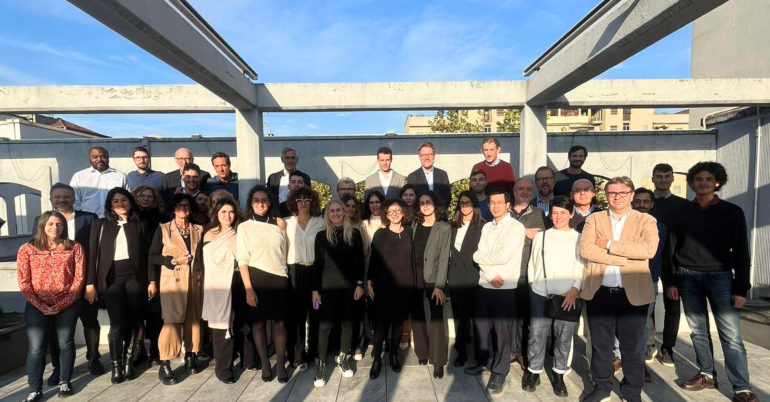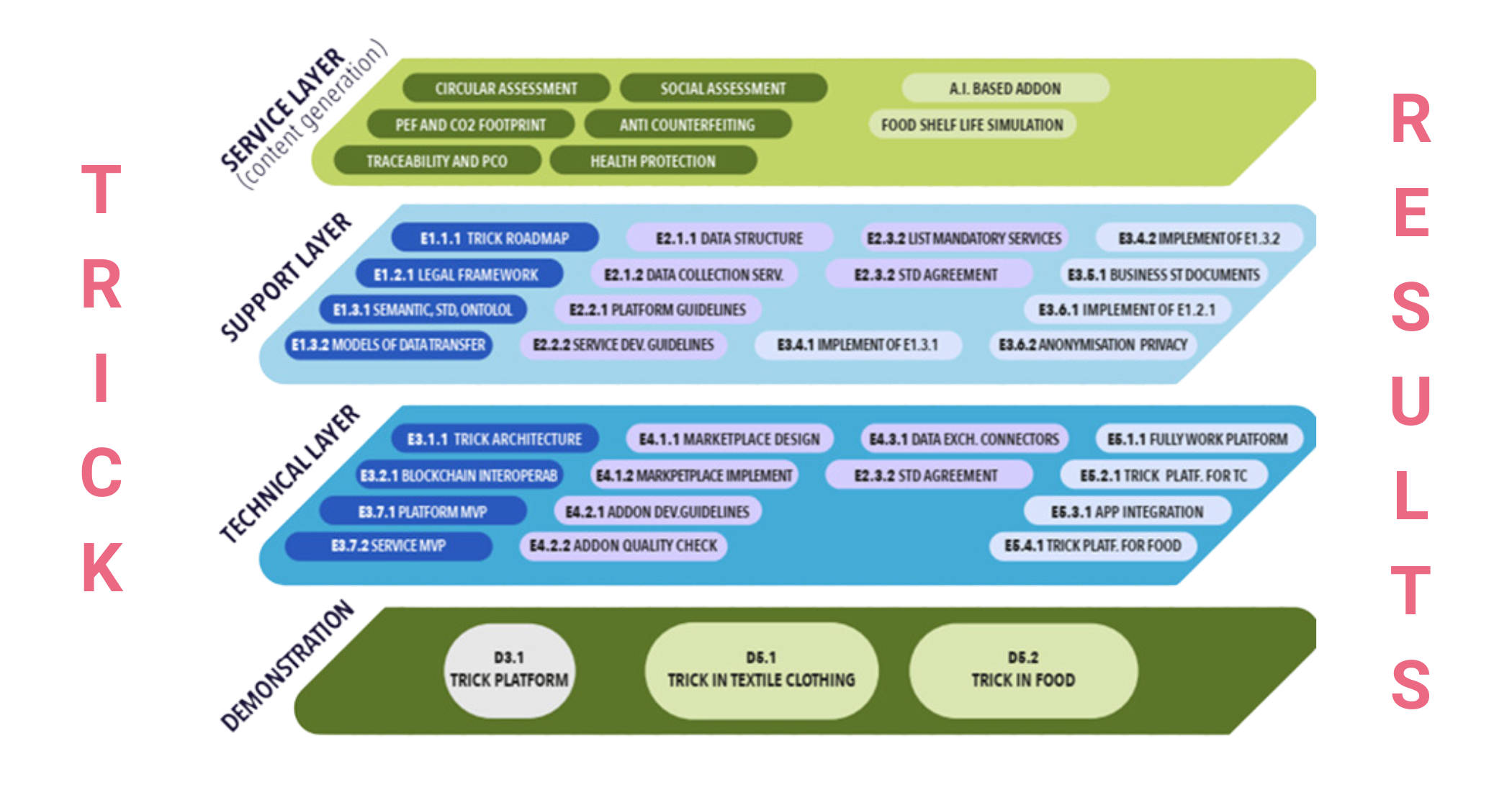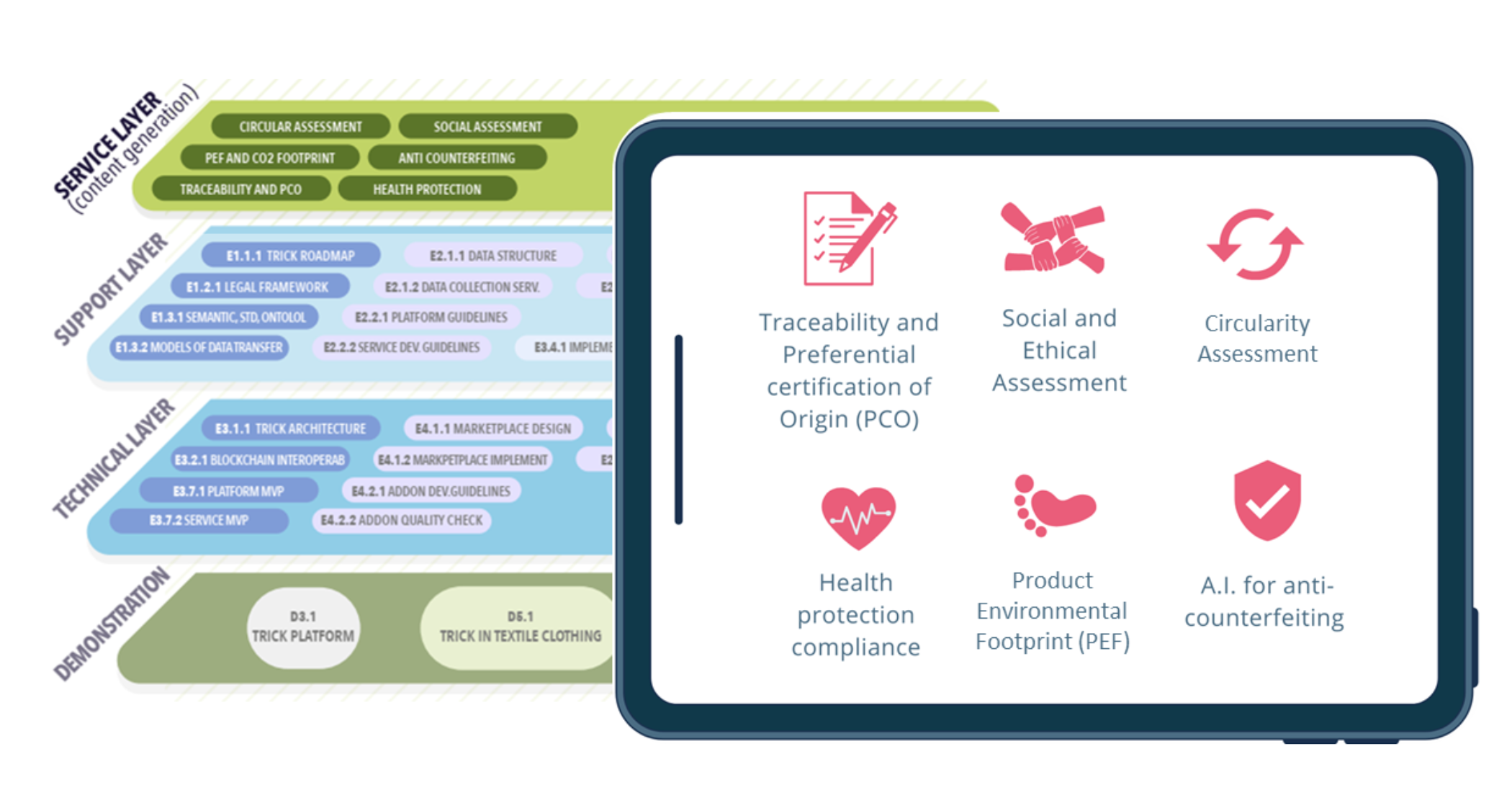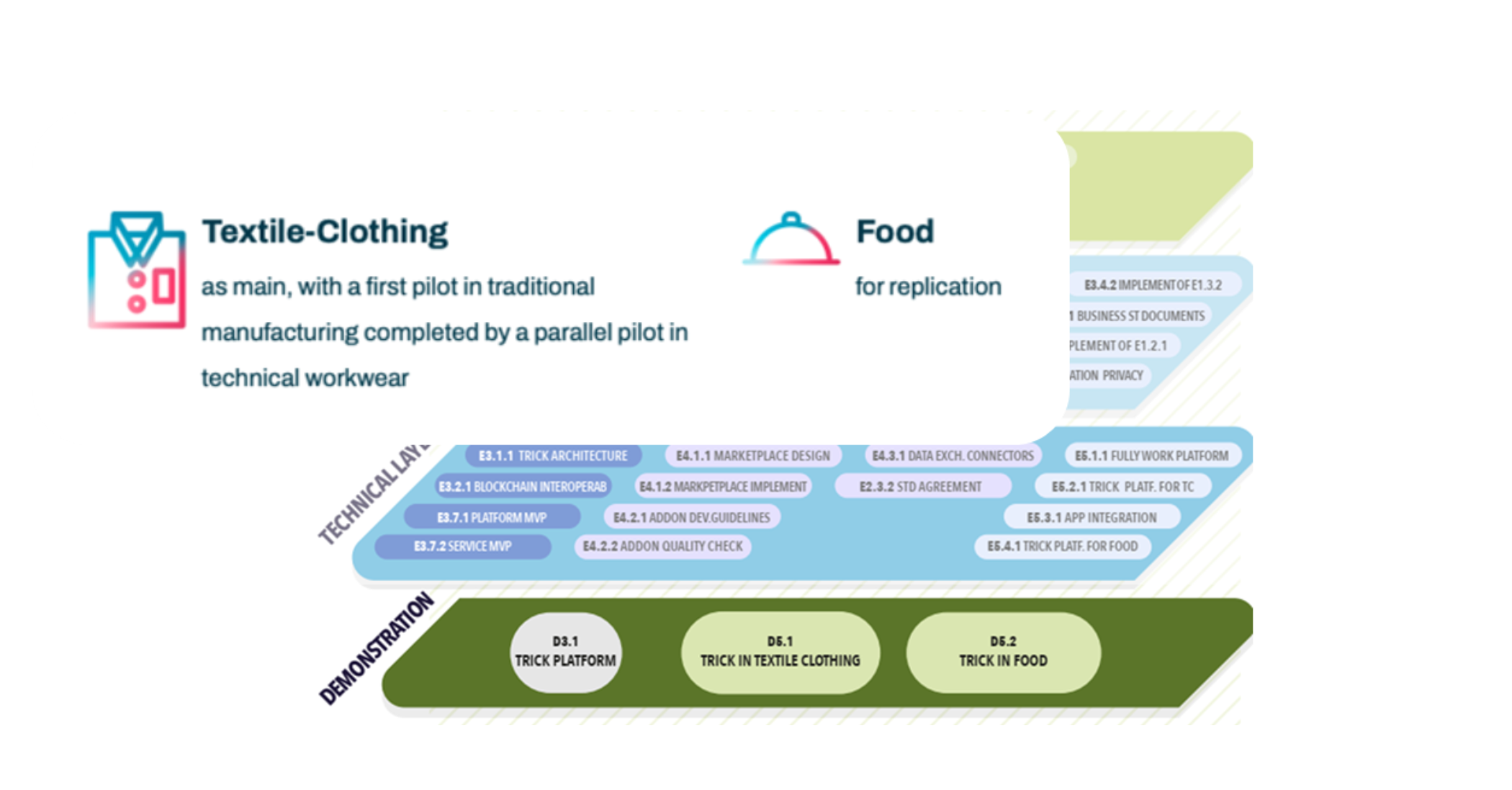TRICK final results: how a digital platform can improve circularity transparency, traceability and sustainability across the supply chain

When we started our journey in 2021, we defined the aim of TRICK project like this: “TRICK will provide affordable and standardised enabler to move SMEs closer to circular economy. The project supports the adoption, tracing and demonstration of sustainable approaches by means of an innovative and circular product information management system, based on a data collection platform secured by Blockchain and integrated with an open marketplace for the matched services”.
Now, after more than 3 years and many implementations, that led to 52 project documents, we are ready to present the results achieved, which go hand in hand, in terms of vision, with the policies applied by the European Union on product traceability. The opportunity came at the 2nd Ecosystex Conference 'From EU research to sustainable circular supply chains', held in Milan, with a key topic on textiles, the main target sector of our project.
In fact, Trick focused on the development of a traceability platform with a pilot in textiles (traditional and technical clothing) and replication in food, two production environments equally involved in the development of technologies at the service of sustainable and circular processes.
Changes in legislation awareness and scenario: the Eco-design requirements
During the project duration, the perception of the role of sustainability in the production and import-export of products has also changed. Consumers’ interest in the sustainability of products is growing, with end users wanting to know where the object of their purchase comes from, how it is produced and with what it is produced. Meanwhile, legislators have made great strides in regulating activities. In July 2024 the cornerstone of the European Commission’s approach to environmentally sustainable and circular products came into force. The Ecodesign for Sustainable Products Regulation (ESPR) is the framework legislation intended to guide rules and regulations on a product-by-product basis, with the aim to significantly improve the circularity, energy performance and other environmental sustainability aspects of products placed on the EU market. Aspects targeted by ESPR include durability, recyclability and energy and resource efficiency. The Digital Product Passport (DPP) is one of the methods being introduced to meet the ESPR targets, sharing information about product performance, the nature and origin of materials and lifecycle environmental impacts, at lot level. The DPP will provide manufacturers, retailers and consumers with relevant information about a product's environmental profile, as well as reassurance that the product in question has not been subjected to greenwashing.
It is clear that the introduction of the DPP, and more broadly the EU guidance of the ERPR, requires the collection and sharing of data and information across the supply chain. It is within this framework that the core concept underlying the Trick project becomes particularly relevant. As Alessandro Canepa, the project coordinator, highlights: «The project’s overarching goal is to establish a reliable, accessible platform that supports data collection for traceability, transparency, and circularity across the supply chain and in compliance with EU regulations, at single lot level».
TRICK from conceptual backbone to final outputs
These are the main issues underpinning both the conceptual backbone in line with European regulations and market demands from which TRICK moved forward, and the results achieved with the project's main outputs:
- Development of Trick traceability platform
- Development of the Textile pilot with Food replication
- Implementation of the service layer of the project, based on 6 main services
- Preferential Certificate of Origin (PCO)
- Social and ethical assessment
- Circularity assessment
- Health protection compliance
- Product Environmental Footprint (PEF)
- AI for anticounterfeiting
It is crucial to note that the platform, developed on the Textile pilot, supports a high degree of standardisation, and is consequently a potential candidate to become a useful tool suitable for the adoption by different industries. Adaptability is a key feature of the platform, thanks to technologies such as the Blockchain, to secure information sharing among many stakeholders and data portability, and the AI, used to analyse data, provide business insights and verify the reliability of the data declared. As Alessandro Canepa shares: «One of the standout aspects of the platform is its ability to integrate various services into a seamless user experience for SMEs, ranging from traceability and Preferential Certification of Origin to circularity and PEF, from consumer health protection to social assessment and AI for anticounterfeiting of data».
The results in a nutshell



Ecosystex Conference: an overview on TRICK sessions
Although the issue of the DPP is not included as a service, an activity that cannot be detailed at the moment as the requirements of the passport have not been defined yet, it should be noted that Trick's role in this scenario is both cross-cutting and essential, as TRICK can collect the required information for traceability and DPP and can support regulation changes and extensions. The same consideration is applicable to PEF (Product Environmental Footprint). Both of these were among the core of discussions during the sessions led by Trick's partners at the Ecosystex Conference.
Our speakers took actively part to 6 different sessions, starting from the showcasing of the final research results from four ECOSYSTEX member projects (TRICK, my-fi, HEREWEAR and SCIRT), following with an in-depth presentation of TRICK policy brief focused on DPP, an introduction to Ecodesign regulantions with insights on TRICK textile pilot for traditional and technical textiles, contributions and perspectives from ECOSYSTEX member projects on ESPR, PEF studies and the Preferential Certificate of Origin service in TRICK project experience, and concluding with a interactive session on data collection and data exchange for traceability.
The Ecosystex Conference was preceded by the last General Assembly of the project, a day of sharing to pull the strings on the journey that has passionately and enthusiastically involved TRICK's more than 30 partners. A special thanks go to Sistema Moda Italia for hosting the General Assembly, and to Texitle ETP, who together with SMI and Accenture, organised the Ecosystex Conference.